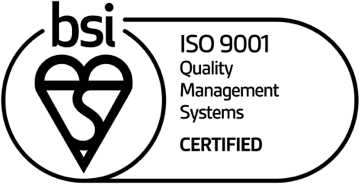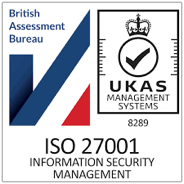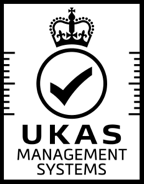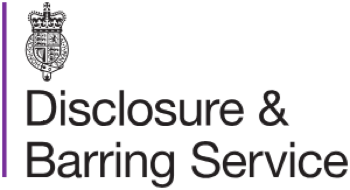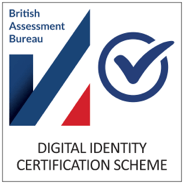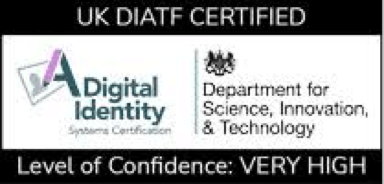With the fast-paced nature of industry standards, it can be challenging to stay up to date. At Checkback, we have all the information you need know about what is the latest version of BS7858.
From the changes and updates that have been made since 2012, to the key features and compliance guidelines of the latest version, we’ve got all the information you need.
Key Takeaways
- The latest version of BS7858 is called BS785:2019 and focuses on maintaining a secure and compliant vetting process through regular revisions and enhanced guidance on risk assessments.
- The new version introduces more rigorous background checks and stricter requirements for verification of identity documents.
- There is an increased emphasis on handling sensitive personal information and compliance with data protection regulations.
- The latest version also includes the introduction of continuous vetting and comprehensive risk assessments for each individual undergoing vetting.
Importance of Staying Updated
Staying updated on the latest version of BS7858 is key for maintaining a secure and compliant vetting process. The evolving landscape of security threats and regulatory requirements necessitates regular revisions to the standard. By staying informed and implementing the changes, you ensure that your vetting procedures remain effective and up-to-date.
The latest version of BS7858 introduces several important updates. These include enhanced guidance on risk assessments, more rigorous background checks, and improved procedures for handling sensitive personal information. By keeping up to date with these changes, you can better identify and mitigate potential risks, ensuring the safety of your organisation and its stakeholders.
Failure to stay updated on the latest version of BS7858 may have serious implications. Outdated vetting procedures may leave your organisation vulnerable to security breaches or non-compliance with regulatory requirements. This can result in financial losses, reputational damage, and potential legal liabilities. By actively engaging with the latest version of BS7858, you demonstrate your commitment to maintaining a secure and compliant vetting process.
To stay updated, regularly review the official sources of information, such as the British Standards Institution (BSI) website or reputable industry publications. Attend relevant training sessions or conferences to learn about the latest best practices and industry trends. By investing time and resources in staying updated, you ensure that your vetting process remains robust and effective in today’s ever-changing security landscape.
Or, simply ensure you have introduced the experience of a qualified BSI PES provider such as Checkback.
Changes and Updates in BS7858
The latest version of BS7858 brings significant changes and updates to enhance the effectiveness and compliance of the vetting process.
One notable change is the increased emphasis on risk assessment. The new standard requires organisations to conduct a comprehensive risk assessment for each individual being vetted. This involves assessing the potential risks associated with the role, the environment in which the individual will be working, and any other relevant factors.
Another important update is the inclusion of a new category of vetting, known as ‘continuous vetting.’ This involves regularly reviewing and reassessing the suitability of individuals who’ve already been vetted. Continuous vetting helps ensure that individuals remain suitable for their roles throughout their employment, reducing the risk of insider threats or other security breaches.
Additionally, the latest version of BS7858 introduces stricter requirements for the verification of identity documents. Organisations must now verify the authenticity of identity documents using reliable sources, such as government databases or trusted third-party services.
Furthermore, the new standard includes specific guidelines for handling personal data during the vetting process, ensuring compliance with data protection regulations. Organisations are required to implement appropriate security measures to protect personal data, including encryption and access controls.
Key Features of the Latest Version
One notable feature of the latest version of BS7858 is the introduction of a comprehensive risk assessment requirement for each individual undergoing vetting. This means that organisations must now conduct a thorough evaluation of the risks associated with employing a particular individual before granting them access to sensitive information or areas. The risk assessment process involves identifying potential risks, assessing their likelihood and impact, and implementing appropriate control measures to mitigate them.
Another key feature of the latest version is the emphasis on continuous monitoring and review of vetted individuals. Organisations are now required to regularly review the suitability of individuals to ensure that they continue to meet the necessary security standards. This includes conducting periodic checks on their criminal record, financial history, and other relevant information to identify any changes that may affect their suitability for the role.
Additionally, the latest version of BS7858 places a greater focus on data protection and confidentiality. Organisations are required to have robust policies and procedures in place to ensure the secure handling, storage, and disposal of personal data collected during the vetting process.
Implementation and Compliance Guidelines
To effectively implement and adhere to the latest version of BS7858, organisations must ensure strict compliance with the recommended implementation and compliance guidelines. Here are some key guidelines to follow:
- Conduct thorough background checks: Ensure that all employees undergo a documented comprehensive vetting process, including identity verification, employment history checks, and criminal record checks.
- Establish clear policies and procedures: Develop and implement clear policies and procedures for the vetting process, including guidelines for handling sensitive information and maintaining confidentiality.
- Regularly review and update processes: Stay up-to-date with changes in legislation and industry best practices, and make necessary adjustments to your vetting processes accordingly.
- Train employees: Provide training to employees involved in the vetting process to ensure they understand the guidelines and procedures, and can effectively carry out their roles – or simply partner with a specialist BS7858:2019 PES service provider to guarantee expertise as standard.
- Maintain accurate records: Keep detailed records of the vetting process, including documentation of checks conducted, decisions made, and any additional actions taken.
Benefits of Adhering to the Latest Version
Adhering to the latest version of BS7858 offers your organisation numerous benefits, including enhanced security measures and improved risk management.
By following the updated guidelines, you can ensure that your employees undergo thorough vetting processes, reducing the risk of employing individuals with malicious intent. This helps to maintain a safe working environment for both your staff and customers.
Implementing the latest version of BS7858 also helps you stay compliant with industry standards and legal requirements. By conducting regular background checks and screening procedures, you demonstrate your commitment to maintaining a high level of security within your organisation. This can help to build trust and credibility with your clients and stakeholders.
Furthermore, adhering to the latest version of BS7858 can help you mitigate potential risks associated with insider threats and data breaches. By implementing robust security measures, such as access controls and monitoring systems, you can protect sensitive information and prevent unauthorised access to your premises.
In addition, by following the latest version of BS7858, you can improve your organisation’s overall risk management strategy. By identifying and addressing potential risks early on, you can reduce the likelihood of security incidents and their associated impacts.
Conclusion
In conclusion, staying updated with the latest version of BS7858 is crucial for employers, employees, and anyone interested in understanding vetting requirements.
The changes and updates in the standard ensure that it remains relevant and effective in today’s ever-changing landscape. By adhering to the latest version, stakeholders can benefit from improved security measures and a comprehensive vetting process. Partnering with Checkback, a qualified, industry-recognised PES provider, will ensure that you remain updated in terms of vetting and compliance.
It’s essential to implement and comply with the guidelines to ensure a safe and secure working environment.

